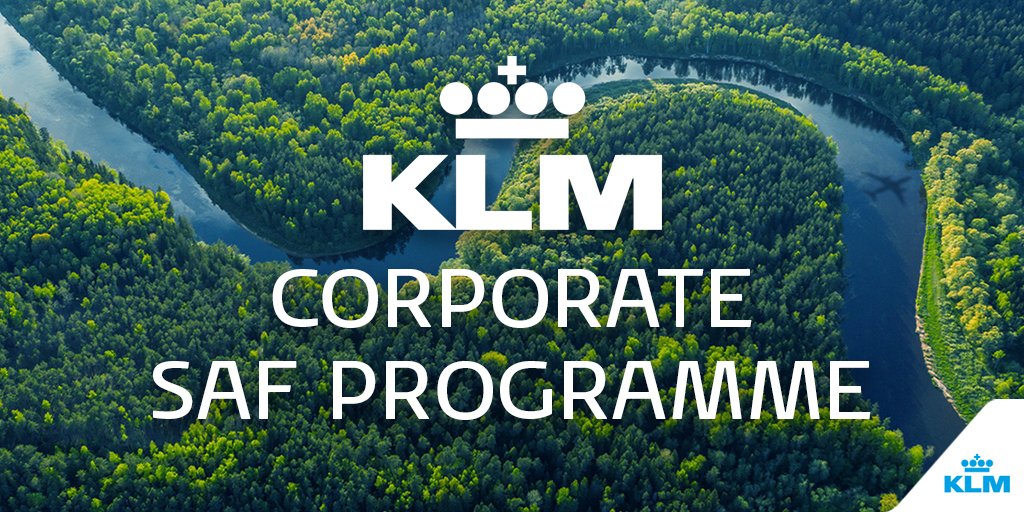Amstelveen, Netherlands, 2021-Jan-29 — /Travel PR News/ — KLM’s Corporate BioFuel Programme has been renamed the KLM Corporate SAF Programme. SAF stands for Sustainable Aviation Fuel. KLM has opted for this new name to make it clear that the fuel it buys is manufactured sustainably, using raw materials that do not cause deforestation, impede food production or harm the environment in any other way. This new name will also mark the start of an initiative to bring the programme to the attention of businesses outside the Netherlands.
“Sustainable Aviation Fuel is not necessarily the same as biofuel. The fact that something is made from organic raw materials, does not necessarily imply that it is sustainable. This led to some confusion,” explains Karel Bockstael, vice president of Sustainability at KLM. “For KLM, the term SAF better describes the alternative we use instead of fossil fuel. The fuel we use is truly sustainable and does not lead to deforestation or replace food production. SAF also includes alternative fuels that are, for instance, made of CO2, renewable energy and water, better known as ‘synthetic kerosene’. This field is undergoing strong development, which is why it is logical that we have decided to rename our corporate programme.”
Sixteen members
The KLM Corporate SAF Programme was launched in 2012 and now includes sixteen partners, including ABN AMRO, Royal Schiphol Group and Arcadis. These businesses and institutions help KLM finance the purchase of SAF, thereby reducing the CO2 footprint of their business travel by air. SAF can reduce CO2 emissions by 85% compared to fossil kerosene, but because it is in short supply and expensive to produce, it is three times more expensive. The SAF purchased by KLM is mixed with fossil fuel and pumped into the refuelling systems at Amsterdam Airport Schiphol and in Los Angeles. The SAF is produced and supplied locally at both locations. The total amount of SAF used by KLM in 2019 amounted to less than 1% of all fuel used by KLM.
“That’s less than we would like, of course. We will need to use a lot more of this fuel to substantially reduce CO2 emissions,” explains Harm Kreulen, director of KLM Benelux. “That is why we will continue to bring the KLM Corporate SAF Programme to the attention of our customers, specifically in this time of crisis. This is the ideal moment for KLM to pursue its ambition to become even more sustainable. The drastic reduction of our CO2 footprint, with the aid of fleet modernisation, improved operational efficiency and SAF, plays an essential part in this ambition.”
Air France KLM Martinair Cargo SAF Programme
Since the start of the year, our cargo customers can also support the development and production of SAF thanks to the new Air France KLM Martinair Cargo SAF Programme. The first customers to join this programme was Kühne+Nagel, who have agreed to invest in SAF for all cargo kilometres traversed by their shipments on the Los Angeles-Amsterdam route.
“Fly Responsibly”
The KLM Corporate SAF Programme is perfectly in step with the “Fly Responsibly” initiative that KLM launched in 2019, with a view to leading the way towards a more sustainable future for air transport. KLM is striving to achieve this, among other things, by making all its products and processes more sustainable today and in the future. However, real progress can only be achieved if the entire industry gets involved. A key aspect of KLM’s “Fly Responsibly” initiative is to invite passengers to make use of its CO2ZERO CO2 compensation programme, but also to invite businesses to join the KLM Corporate SAF Programme and cargo customers to join the Air France KLM Martinair Cargo SAF Programme for their airfreight shipments.
Contact:
Email to: mediarelations@klm.com
Source: KLM
###

